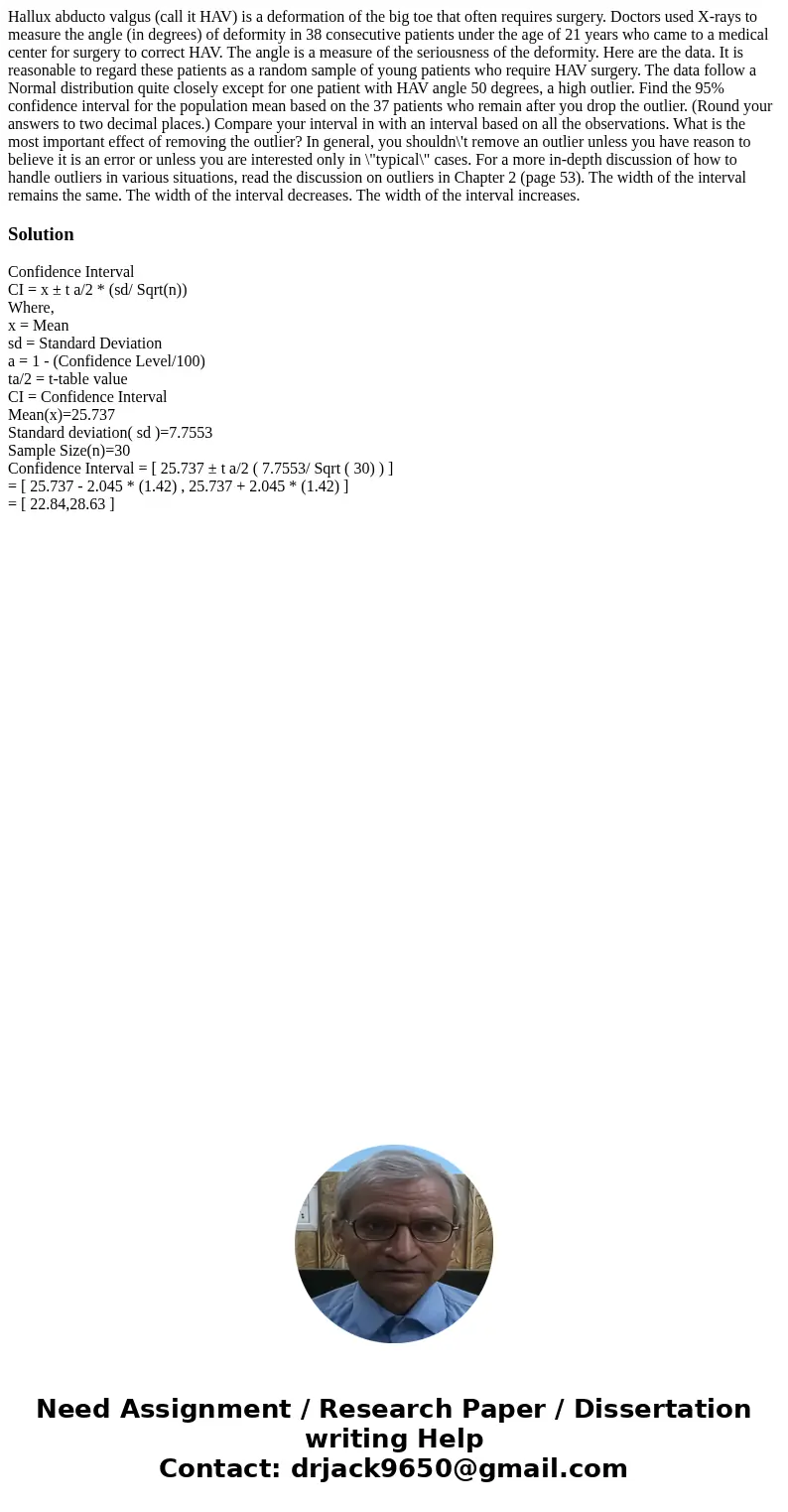Hallux abducto valgus call it HAV is a deformation of the bi
Hallux abducto valgus (call it HAV) is a deformation of the big toe that often requires surgery. Doctors used X-rays to measure the angle (in degrees) of deformity in 38 consecutive patients under the age of 21 years who came to a medical center for surgery to correct HAV. The angle is a measure of the seriousness of the deformity. Here are the data. It is reasonable to regard these patients as a random sample of young patients who require HAV surgery. The data follow a Normal distribution quite closely except for one patient with HAV angle 50 degrees, a high outlier. Find the 95% confidence interval for the population mean based on the 37 patients who remain after you drop the outlier. (Round your answers to two decimal places.) Compare your interval in with an interval based on all the observations. What is the most important effect of removing the outlier? In general, you shouldn\'t remove an outlier unless you have reason to believe it is an error or unless you are interested only in \"typical\" cases. For a more in-depth discussion of how to handle outliers in various situations, read the discussion on outliers in Chapter 2 (page 53). The width of the interval remains the same. The width of the interval decreases. The width of the interval increases.
Solution
Confidence Interval
CI = x ± t a/2 * (sd/ Sqrt(n))
Where,
x = Mean
sd = Standard Deviation
a = 1 - (Confidence Level/100)
ta/2 = t-table value
CI = Confidence Interval
Mean(x)=25.737
Standard deviation( sd )=7.7553
Sample Size(n)=30
Confidence Interval = [ 25.737 ± t a/2 ( 7.7553/ Sqrt ( 30) ) ]
= [ 25.737 - 2.045 * (1.42) , 25.737 + 2.045 * (1.42) ]
= [ 22.84,28.63 ]

 Homework Sourse
Homework Sourse